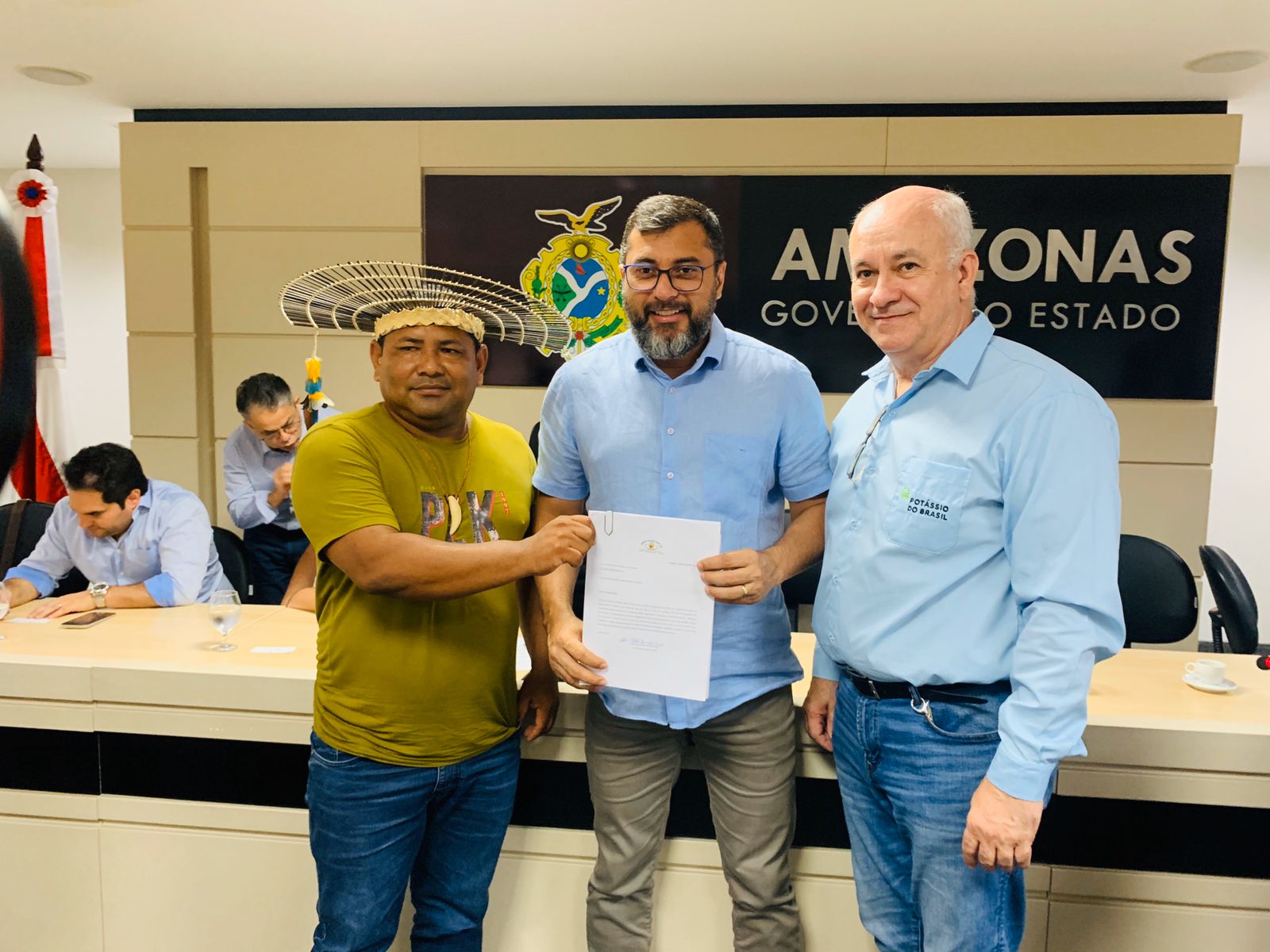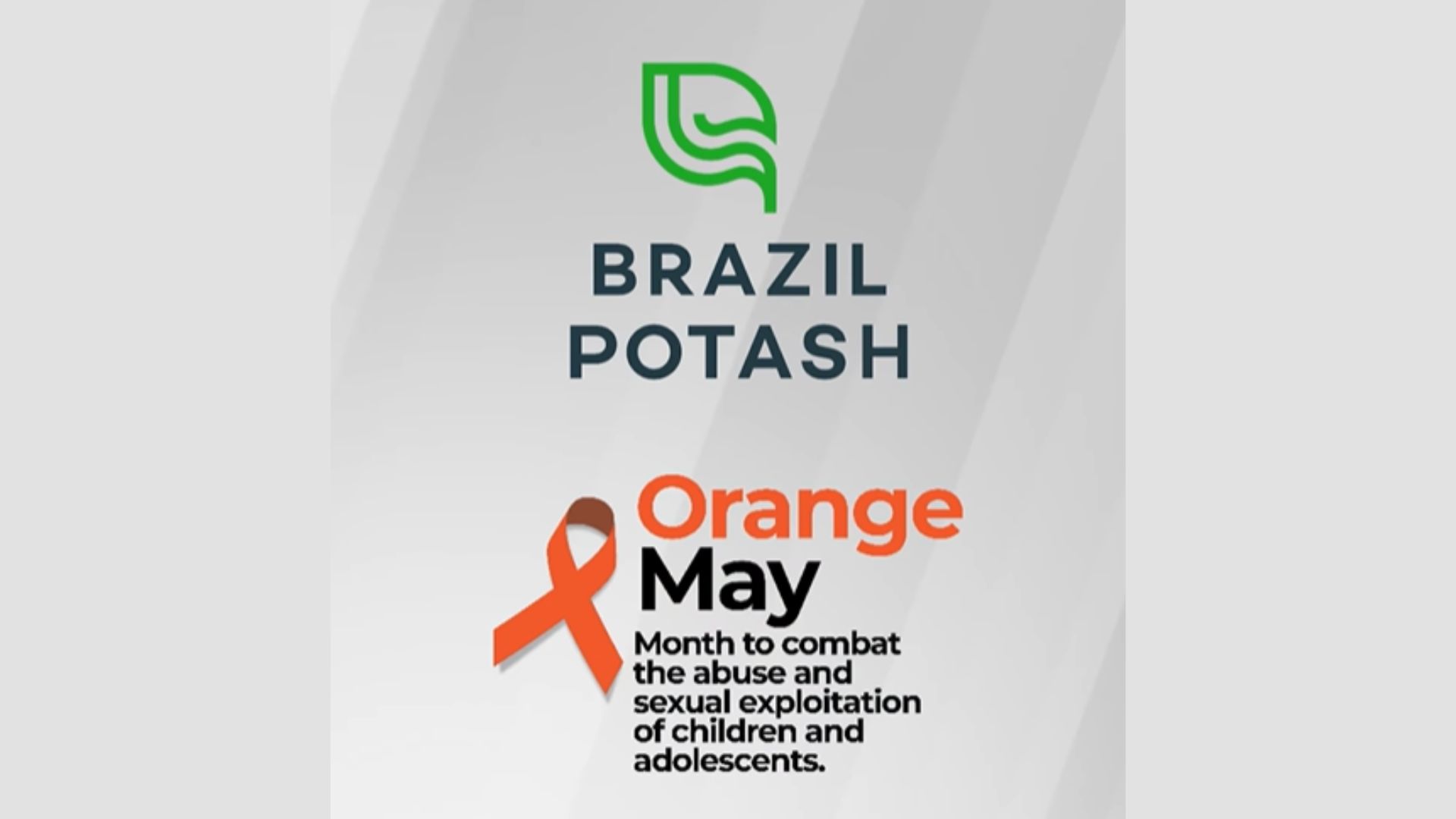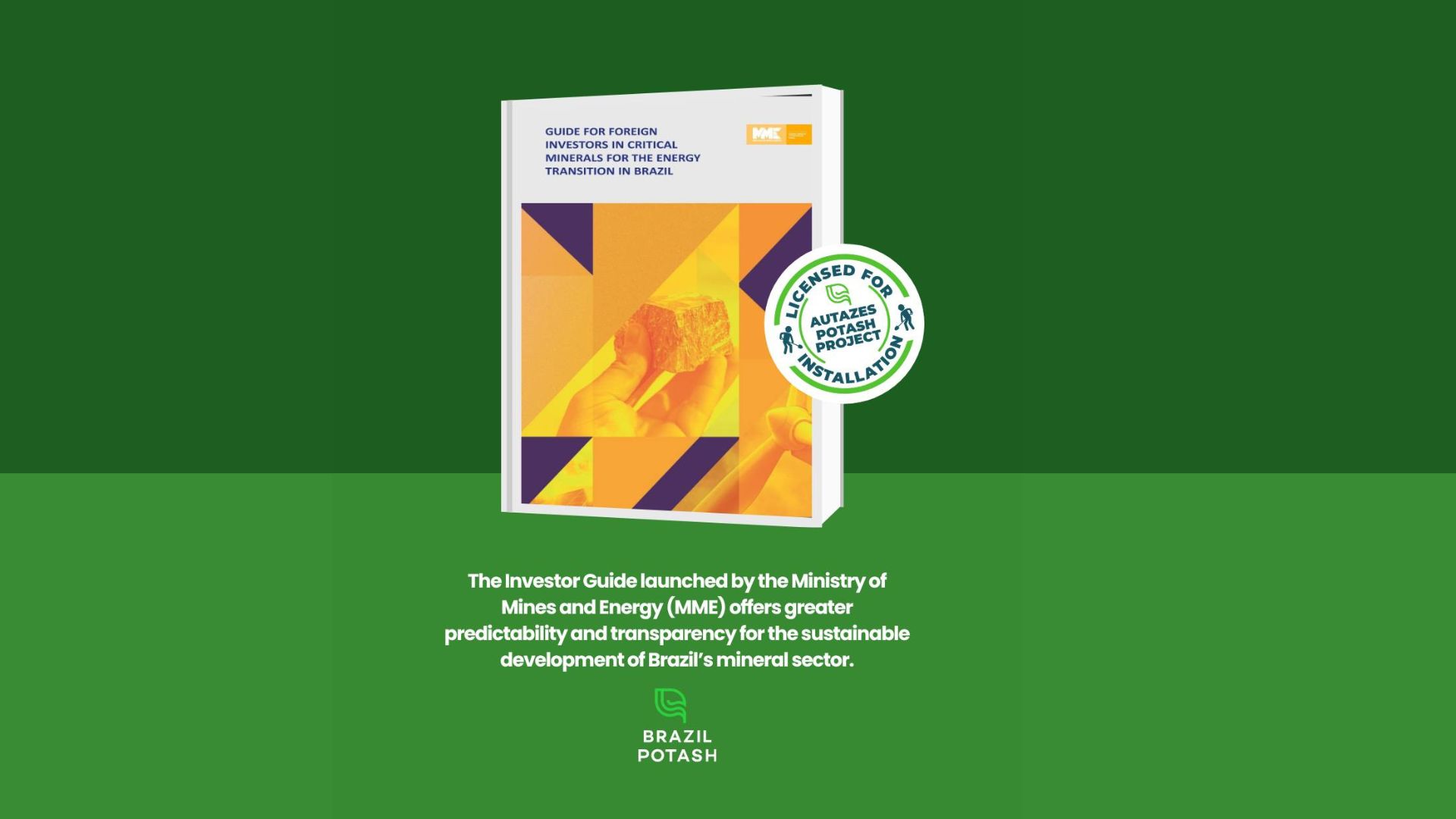The outcome of the General Assembly held last Thursday and Friday (September 21st and 22nd) was presented last Monday (September 25th) to Governor Wilson Lima in the presence of dignitaries.
Indigenous leaders of the Mura people from Autazes, representing 36 villages and approximately 12,000 indigenous residents of the municipality (112 kilometers from the capital), visited the headquarters of the Government of Amazonas this Monday (September 25th) to deliver to Governor Wilson Lima a record and report of the General Assembly that took place last week among indigenous chiefs in the municipality. This assembly presents their decision to accept and implement the Autazes Potash Project. Potássio do Brasil was invited to participate in both the assembly and today’s event, which included the presence of state deputies, secretaries, and the president of IPAAM, the environmental licensing agency for the project.
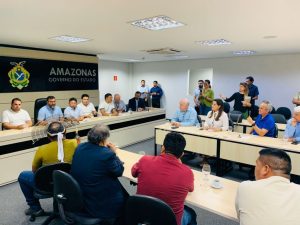
According to the governor, the support of the Mura people is crucial not only for the development of the municipality of Autazes but also for the entire Amazonas region, with the possibility of establishing a new economic foundation for the state.
“This is a very important day, a historic day because we are taking a significant step towards changing the lives of the people who reside in the state of Amazonas, especially those in the municipality of Autazes. This is a fundamental step, and I consider it the most important one, which is the process of consulting the Mura people about the potassium exploration activity in the municipality of Autazes,” highlighted Wilson Lima. “We are talking here about another economic foundation for the state of Amazonas. We have the Zona Franca, which we will not relinquish, we have the natural gas issue, which we have already made significant progress on, and the next step is the potassium matter,” he added.
On this occasion, representing the Mura people, José Cláudio dos Santos Pereira, the general coordinator of the Indigenous Mura Council (CIM), handed Governor Wilson Lima a letter and a report from the General Assembly held last week in Terra Preta da Josefa village, where indigenous leaders accepted the implementation of the Autazes Potash Project. “For us, this is very important because it represents the future, the economic progress of Autazes and the state of Amazonas. But it is important to emphasize that the Mura people understand that we are working alongside the Federal Justice, and we do not intend to challenge it. We understand that IPAAM is the licensing authority and should proceed with the process,” he said.
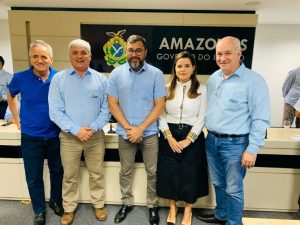
Adriano Espeschit, the president of Potássio do Brasil, pointed out that the potash produced worldwide is a crucial fertilizer, and Brazil is dependent on potash imports. “This is a new moment for Autazes, for Amazonas, for Brazil, and why not say it for the world, as food security depends on fertilizers for agriculture, to feed people and eradicate hunger in our world. As President Lula said at the opening of the UN Assembly, over 750 million people are suffering from hunger. This is a strategic project to end world hunger. We will work on the next steps to advance licensing and begin the project’s installation in Autazes,” he explained.
In addition to indigenous leaders, those present at the meeting with the governor included the president of Potássio do Brasil and its board of directors, state deputies Roberto Cidade, president of the Amazonas Legislative Assembly, Sinésio Campos, Felipe Souza, and Delegado Péricles; state secretaries of Economic Development, Science, Technology, and Innovation (Sedecti), Serafim Corrêa; Mining, Gas, and Energy (Semig), Ronney Peixoto; the chief of the Civil House, Flávio Antony; the CEO of the Amazonas Environmental Protection Institute (Ipaam), Juliano Valente; and the mayor of Autazes, Andreson Cavalcante.
Potential
Brazil’s potash consumption stands at approximately 12.6 million tons. The Autazes Potash Project alone, producing 2.2 million tons per year, can contribute to around 20% of Brazil’s annual consumption. Potássio do Brasil has a ready project to begin constructing the mining infrastructure in Autazes, which is currently in the environmental licensing phase. The projected investment is $2.5 billion, and the approved project’s lifespan is currently estimated at 23 years.
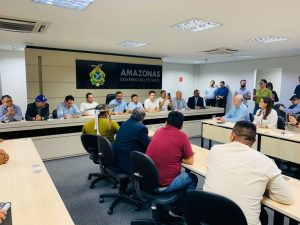
Approximately 95% of the potash produced worldwide is used for fertilizer production, according to the Brazilian Mining Institute. Despite being one of the world’s largest food exporters, Brazil imports 85% of the fertilizers used in agriculture.
The Autazes Potash Project envisions about 30 socio-economic and environmental programs that will complement the program proposed by the Mura people – the Good Living Plan Mura, as proposed by the President of Potássio do Brasil at the last General Assembly of Terra Preta da Josefa village and accepted by over 90% of those present.
__________________________________
Cover Photo: Governor of Amazonas, Wilson Lima receives the Assembly report from Cláudio Mura alongside the president of Potássio do Brasil, Adriano Espeschit.
Content Produced by Potássio do Brasil




